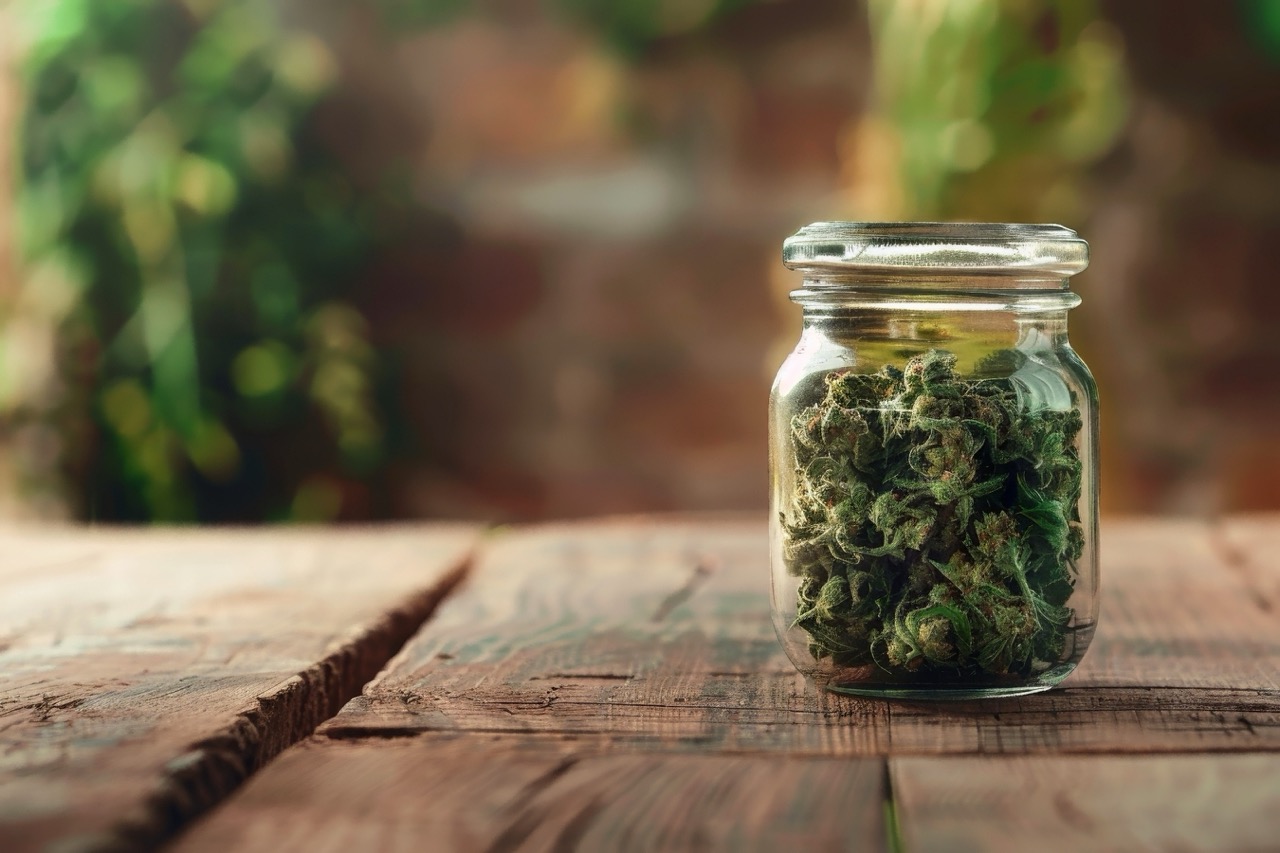Cannabis use disorder (CUD), or marijuana addiction, occurs when an individual continues to use cannabis despite experiencing clinically significant impairment. This condition extends beyond frequent use; over time, it may affect mental health, damage relationships, and impact physical well-being. Early recognition supports more effective treatment and long-term recovery. Increased awareness of signs, risk factors, and treatment options plays a critical role in improving overall health and restoring balance in daily life.

Understanding the Condition
CUD is a diagnosis given for problematic marijuana (cannabis) consumption. This condition was introduced in the Diagnostic and Statistical Manual of Mental Disorders, Fifth Edition (DSM-5). The previous DSM edition separated problematic use into two different disorders: cannabis abuse and cannabis dependence [1]. This distinction shows that individuals may be harmed by marijuana use even without full addiction.
An estimated 10% of the nearly 193 million cannabis users worldwide are affected by CUD. While it may not be as severe as other substance use disorders, many individuals still seek treatment due to the widespread availability of cannabis [2]. The high user base contributes to a significant number of treatment cases, despite the condition’s comparatively lower health burden.
Shifting Cultural Perceptions
Cannabis is the most commonly used illicit substance in the United States after alcohol and tobacco. In the past decade, its use has increased from 4% to 9.5% [3]. Changing attitudes, especially among adolescents and adults, have contributed to intergenerational patterns, with children of early-onset users more likely to start using cannabis at a younger age.
Public concern about cannabis risks has declined sharply, contributing to increased consumption [3]. Despite growing use, the addictive potential of cannabis remains underestimated. Yet CUD shares core features with other substance use disorders, highlighting the need for greater clinical attention and public education.
Recognizing Signs and Symptoms
CUD involves a pattern of problematic cannabis use that affects relationships, daily functioning, and emotional regulation. Once an individual develops a tolerance, they may require increasing amounts to achieve intoxication. The signs of dependence generally appear over 12 months, although a diagnosis may be made earlier in cases of daily or near-daily use for at least three months [4].
Common signs and symptoms of problematic cannabis use include [4]:
- Using cannabis in larger amounts or for longer than intended
- Making repeated, unsuccessful attempts to cut down or control use
- Spending significant time obtaining, using, or recovering from cannabis
- Experiencing cravings or intense urges to use
- Continued use despite problems at work, school, or in relationships
- Developing tolerance or experiencing withdrawal symptoms when not using
Other signs of cannabis use disorder that may be noticeable to others include an unkempt appearance, withdrawal from social connections, and clear changes in mood or behavior. A person may become defensive or hostile when asked about their use, often denying it or acting secretively to conceal their habits [5]. Recognizing these patterns, along with understanding the associated risk factors, can help in making informed decisions about cannabis use and identifying when support may be needed.
Risk Factors for the Disorder
Cannabis use often progresses in stages, starting with experimental or occasional use, moving to heavy use, and eventually developing into a substance use disorder. This progression involves several interconnected risk factors that increase the likelihood of developing CUD, including the following [5]:
- Brain Chemistry: The active compound THC affects brain chemistry by overstimulating the brain’s reward system. THC causes unusually high dopamine levels, shifting motivation away from natural rewards like relationships or food. Over time, this disrupts normal brain function.
- Genetic Influences: Genetic factors account for 40 to 60% of a person’s vulnerability to substance use disorders, and having a biological parent or sibling with a substance use disorder also raises this risk.
- Mental Health Conditions: Conditions such as depression or anxiety may increase cannabis use as a form of self-medication, further reinforcing CUD risk. This overlapping relationship between mental health and cannabis use complicates both diagnosis and treatment.
- Social Risk Factors: Access to cannabis, exposure through household members or peers, and the legal availability of cannabis products all raise risk. Using higher-potency cannabis or using it more frequently also contributes to dependence.
- Demographic Risk Factors: Starting cannabis use before age 18 makes a person more likely to develop CUD, and so does being male. Other risk factors include parental substance use, poor school performance, oppositional behaviors, alcohol or nicotine use, as well as a history of childhood trauma.
Physical Health Consequences
CUD can affect both physical health and mental well-being, with effects that tend to build gradually. Regular or heavy use may lead to chronic bronchitis, which is marked by persistent coughing and airway inflammation. Lung function can also be affected, though the risk appears lower than with tobacco. Cannabis use increases the likelihood of vehicle accidents because even at low doses, THC impairs coordination, reaction time, and judgment. Further, THC interacts with receptors in the walls of blood vessels, affecting how they expand or contract. This can lead to changes in blood pressure and heart rate, which may increase the risk of heart-related issues, especially in people with existing cardiovascular vulnerabilities [6].
Mental Health Effects
Cannabis use disorder also affects mental health in ways that may not always be visible right away. Regular use is linked with increased risk of anxiety, depression, or psychosis, particularly in people already vulnerable to these conditions. Adolescents are especially at risk, as early cannabis use can disrupt brain development and cause lasting difficulties with memory or focus. Brain imaging shows reduced connectivity in areas responsible for learning and self-control. For those with a genetic predisposition, cannabis use may trigger psychotic disorders like schizophrenia earlier than expected, making it fundamental to recognize and address early patterns of use [6].
Treatment of Cannabis Use Disorder
A lot of evidence suggests that behavioral interventions are successful in helping people who have CUD [7]. Cognitive behavioral therapy (CBT) and motivational enhancement therapy (MET) each offer structured methods that support reduced cannabis use and help manage associated challenges. CBT helps people develop coping strategies and change patterns linked to their cannabis use, while MET strengthens motivation to quit by helping them to resolve ambivalence about changing their behaviors. While these interventions can reduce cannabis use and improve related functioning, sustained abstinence is less common than outcomes for other substance use disorders.
Many people experience periods of reduced use or improvement rather than complete and lasting cessation, unlike with disorders linked to alcohol or tobacco use. As with other substance use disorders, social support from family, friends, and structured recovery groups can improve outcomes by reinforcing motivation and providing accountability. As of now, no medications are approved specifically for treating cannabis use disorder, though ongoing research continues to explore pharmacological options [7].
The Path to Recovery
Cannabis use disorder is a real and manageable condition, and although it can affect both physical and mental health, recovery is possible with the right approach. As awareness grows, more people are seeking help without feeling judged or dismissed.
Dedicated treatment options have expanded, making support easier to access and more tailored to those affected. Behavioral therapies continue to improve as understanding of what helps people make lasting changes deepens. At the same time, research into how cannabis affects the brain offers hope for future medical treatments. Early intervention programs are also helping by reaching people before the disorder becomes more severe.
Alongside treatment, social support from loved ones and recovery communities helps strengthen progress and reduce the stigma that often prevents people from seeking help. Together, these advances make recovery feel not only possible but within reach for anyone ready to take that first step.
- American Psychiatric Association. (2022). Diagnostic and statistical manual of mental disorders (5th ed., text rev.). Washington, DC: American Psychiatric Association. https://doi/book/10.1176/appi.books.9780890425596.
- Connor, J. P., Stjepanović, D., Le Foll, B., Hoch, E., Budney, A. J., & Hall, W. D. (2021). Cannabis use and cannabis use disorder. Nature Reviews Disease Primers, 7(1), 16. https://doi.org/10.1038/s41572-021-00247-4.
- Zehra, A., Burns, J., Liu, C. K., Manza, P., Wiers, C. E., Volkow, N. D., & Wang, G. J. (2018). Cannabis addiction and the brain: A review. Journal of Neuroimmune Pharmacology, 13, 438-452. https://link.springer.com/article/10.1007/s11481-018-9782-.
- World Health Organization. (2025). ICD-11 for mortality and morbidity statistics: Code 1129015467. World Health Organization. https://icd.who.int/browse/2025-01/mms/en#1129015467.
- Cleveland Clinic. (n.d.). Cannabis use disorder. https://my.clevelandclinic.org/health/diseases/cannabis-use-disorder.
- Volkow, N. D., Baler, R. D., Compton, W. M., & Weiss, S. R. (2014). Adverse health effects of marijuana use. New England Journal of Medicine, 370(23), 2219-2227. DOI:10.1056/NEJMra1402309.
- Budney, A. J., Roffman, R., Stephens, R. S., & Walker, D. (2007). Marijuana dependence and its treatment. Addiction Science & Clinical Practice, 4(1), 4-16. https://pmc.ncbi.nlm.nih.gov/articles/PMC2797098/.
The Clinical Affairs Team at MentalHealth.com is a dedicated group of medical professionals with diverse and extensive clinical experience. They actively contribute to the development of content, products, and services, and meticulously review all medical material before publication to ensure accuracy and alignment with current research and conversations in mental health. For more information, please visit the Editorial Policy.
MentalHealth.com is a health technology company guiding people towards self-understanding and connection. The platform provides reliable resources, accessible services, and nurturing communities. Its purpose is to educate, support, and empower people in their pursuit of well-being.
Areesha Hosmer is a writer with an academic background in psychology and a focus on Cognitive-Behavioral Therapy (CBT).
Dr. Holly Schiff, PsyD, is a licensed clinical psychologist specializing in the treatment of children, young adults, and their families.
The Clinical Affairs Team at MentalHealth.com is a dedicated group of medical professionals with diverse and extensive clinical experience. They actively contribute to the development of content, products, and services, and meticulously review all medical material before publication to ensure accuracy and alignment with current research and conversations in mental health. For more information, please visit the Editorial Policy.
MentalHealth.com is a health technology company guiding people towards self-understanding and connection. The platform provides reliable resources, accessible services, and nurturing communities. Its purpose is to educate, support, and empower people in their pursuit of well-being.


